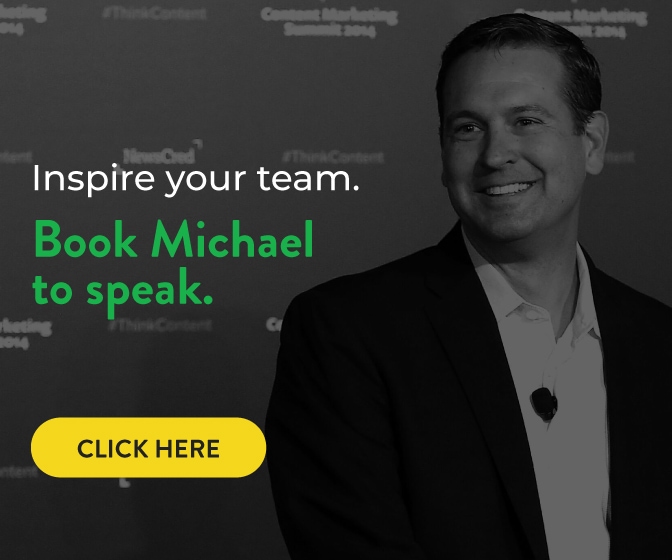In a decade in which many executives valued innovation yet felt leery about taking the plunge, Jeffrey Immelt took GE’s reins, transforming the legacy giant into a more agile organization. With a core commitment to lifelong learning not only personally but corporately as well, Immelt created a culture of innovation and empathy within the company.
As I sat down to write my chapter on management in my new book, Mean People Suck, I came across an Economist article, “A Hard Act to Follow,” chronicling Immelt’s rise. What stood out to me were several factors: his patience, his love of continuous learning, and his empathy that made him a force for change within GE’s old-school corporate culture.
Quick Takeaways:
- Patience paid off during GE’s transformation from legacy to Agile innovator under Jeffrey Immelt’s leadership.
- Empathy allowed Immelt to see situations from an alternative viewpoint, driving innovation.
- A company-wide commitment to continuous learning continues to drive GE”s innovation.
Patience Pays Off
At the time that the Economist piece went to press, Immelt had been at GE’s helm for 13 years, an eternity in today’s rapid-change corporate environment. He had just won a battle to acquire French engineering firm Alstom’s energy interests from the government’s favorite, Siemens, who not only had the help of the French bureaucracy, but also GE’s Japanese rival, Mitsubishi Heavy Industries.
The deal shocked many investors and even some executives within his own company, giving Immelt’s earlier promise to restrain his acquisitions. Yet, Immelt had a strategic goal in this particular acquisition: to “transform GE from a misfiring finance-heavy conglomerate into a more focused maker of industrial equipment.”
Shedding some of its financial company holdings itself was, however, on most GE investors’ “I want” lists. Frankly, the company’s near-escape from disaster during the 2008 financial meltdown had the investors a little jittery, with GE’s profits from its financial companies a massive 45 percent in 2013. Placing more of its profits in its industrial holdings looked to be a savvy move on Immelt’s part.
The Alstom acquisition came at not only the end of patient negotiations but also Immelt’s long climb from disaster after his predecessor’s legendary success. Steering the legacy firm through the burst dot-com bubble, the September 11 attacks, the 2008 financial crisis, and a hurricane or two, Immelt stayed the course, marking a slow yet secure climb back into relevance.
It was Immelt’s “charm offensive,” argued the article, that clinched the deal. That caught my eye because charm that lasts so long is rarely smoke and mirrors, but rather has its roots in genuine admiration of others and an inquisitive mind that never stops learning. Those intrinsic qualities, I would argue, allowed him to see the potential in acquiring Alstom – as well as in some of his other transformational moves.
In a company founded by the ultimate innovator – Thomas Edison – Immelt’s innovative mindset returned the company to its outside-the-box roots. Those roots run deep – and depend on Immelt’s ability to see the potential in situations and people that others in his position might reject.
Immelt’s Empathy for Working-Class Americans Spurred Innovation
First of all, as MarketWatch’s Bob Sechler and others observed, Immelt raised corporate eyebrows for his “empathy for Wall Street protesters” at the height of Occupy Wall Street. Bucking the financial industry’s status quo, Immelt saw potential, not problems, in these protesters.
Arguing that those in the financial sector need to listen to the voices in the street who voiced their frustration about Wall Street’s seeming indifference to the 2011 unemployment rate, Immelt put his skills to work to solve that problem. That kind of empathy drove him to forge a partnership between business and government, advising then-President Obama on measures both sectors could take to ease the protesters’ pain.
Crossing party lines (Immelt was a member of the opposition Republican party) to partner with the President to make a better life for all Americans was only one aspect of his innovative move. Divesting himself of those financial-sector dead weights and investing in more job-promoting industries was an outgrowth of that unusual show of empathy from one of the Street’s own – and it demonstrates a phenomenon I see often in my work with corporate America.
That phenomenon is that more than often, empathy produces profits, not bankruptcy – with all apologies to Scrooge.
So does empathy for the environment, so it seems. As the Economist article pointed out, Immelt’s innovative strategy included efforts “to process deepwater oil on the seabed, rather than pumping it to the surface, which could reduce costs per barrel by around one-third.” Optimizing jet engines to burn less fuel upon landing, optimizing machine performance, and reducing energy usage by switching to more software-powered processes also number among Immelt’s savvy moves.
Immelt’s innovations don’t stop at the border, though. He has worked hard to develop “relationships what will deliver long-term rewards” in countries as far away as Nigeria, helping to improve health care on the African continent even while creating a more equitable power generation model for the underdeveloped country.
That investment, as well as Immelt’s other global undertakings, marks Immelt as an executive that can not only grow goodwill, but revenue as well. A majority of the company’s revenue, reports The Economist, now comes from overseas, a result of Immelt’s forward-thinking way of doing business.
Continuous Learning Fosters Innovation Under Immelt’s Guidance
Internally, Immelt has fostered an environment of continuous learning. With Silicon Valley hires and a commitment to Agile methodology, he has shown himself to model openness to new ideas, leading to breathtaking innovations in the industrial world.
That initiative, called FastWorks, had at its heart fostering more innovation and creativity among GE’s employees. With Immelt himself modeling a willingness to learn – and adopt – new ideas and new ways of working, it promises to be a success far beyond its initial successes.
Immelt’s commitment to lifelong learning doesn’t just include industry innovations. At its heart, FastWorks’ success depends on customer feedback to drive innovation. Empathy for its customers – born of a desire to learn from all possible sources of knowledge – has produced a wealth of success for Immelt and GE.
So what do you think? Please consider picking up your copy of Mean People Suck today and get the bonus visual companion guide as well. Or check out our services to help evolve your culture. And, I would be thrilled to come present to your team on the power of empathy! Get in touch with me today!


Your point of view caught my eye and was very interesting. Thanks. I have a question for you.
Your article helped me a lot, is there any more related content? Thanks!
Your article helped me a lot, is there any more related content? Thanks!
Your article helped me a lot, is there any more related content? Thanks!
I don’t think the title of your article matches the content lol. Just kidding, mainly because I had some doubts after reading the article.
Your point of view caught my eye and was very interesting. Thanks. I have a question for you.
Can you be more specific about the content of your article? After reading it, I still have some doubts. Hope you can help me.
Hey There. I found your weblog the use of msn. That is a really smartly written article.
I will make sure to bookmark it and return to read more of your useful info.
Thank you for the post. I will definitely comeback.
Here is my web blog … nordvpn coupons inspiresensation
Hey outstanding blog! Does running a blog like this
take a massive amount work? I’ve absolutely no understanding of programming however I
had been hoping to start my own blog soon. Anyway, should you have any ideas or techniques for new blog owners please share.
I know this is off topic nevertheless I simply needed to
ask. Kudos!
Here is my web-site nordvpn coupons inspiresensation
bookmarked!!, I like your website!
Feel free to visit my homepage … nordvpn coupons inspiresensation
Hey there, I think your site might be having browser compatibility issues.
When I look at your blog site in Ie, it looks fine but when opening in Internet Explorer, it has
some overlapping. I just wanted to give you a quick heads
up! Other then that, superb blog!
my website :: nordvpn coupons inspiresensation
nordvpn 350fairfax
It’s very easy to find out any topic on web as compared to books,
as I found this post at this site.
Your article helped me a lot, is there any more related content? Thanks!
Your point of view caught my eye and was very interesting. Thanks. I have a question for you.